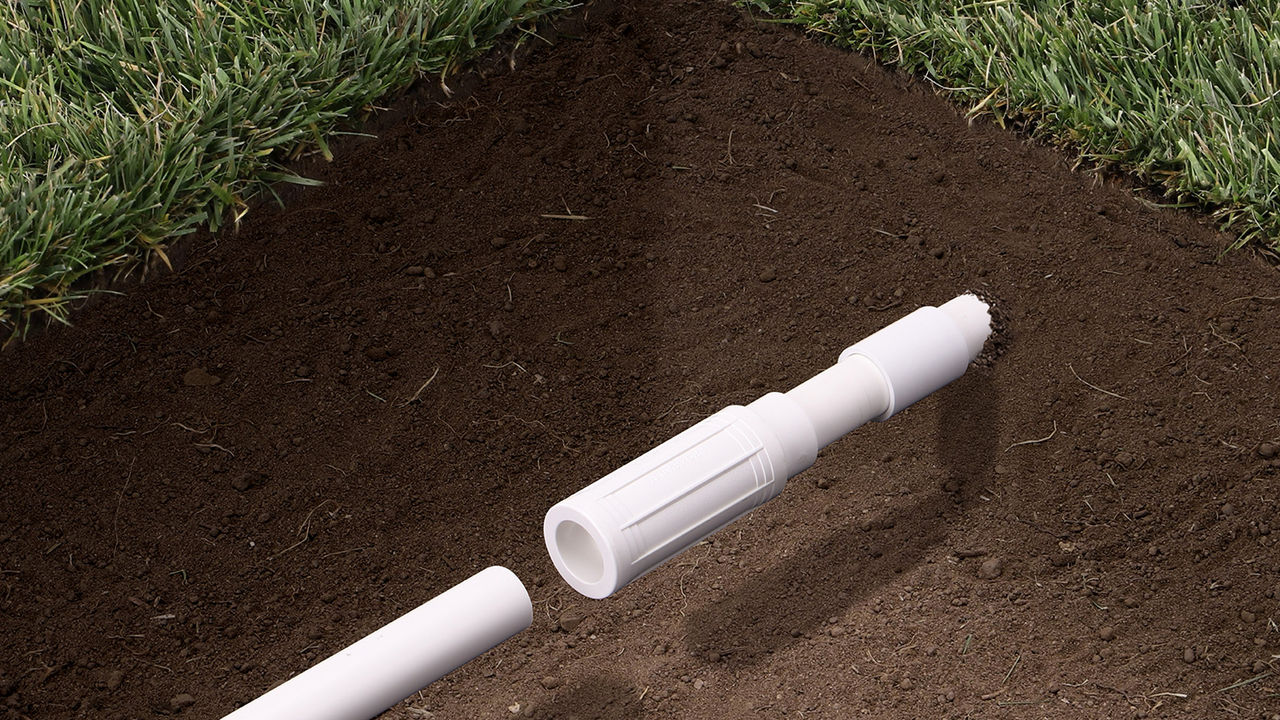By NORMA Group
Guide to Choosing Drainage Pipe
Different types of pipe have pros and cons, but which one is right for your application? Read on to learn about the most commonly used types of pipe used in stormwater management and drainage applications, the advantages, and disadvantages of each, and some key things to consider before you start your project.

Corrugated Plastic Pipes
Provides advanced solutions for stormwater
ADVANTAGES
Long-life Performance
- Abrasion of the inner wall of the pipes is very low on plastic pipes
- Plastics are very resistant against acids and other aggressive fluids
Light in Weight but Very Strong
- Up to 60 % of raw materials can be saved in comparison to solid walled plastic pipes. The strength of the pipes is given by the corrugated design of the outer wall and not by wall thickness, as it applies for solid wall pipes.
- Less manpower is needed for the installation of the pipes due to the low weight. Corrugated plastic pipes can be even installed in very constrained areas.
Low Operational Cost
- Low transportation costs, as higher quantities of Corrugated Pipe can be loaded on one truck in comparison to concrete pipes.
- Less damage during storage and handling
- No heavy duty equipment is required for installation
Flexibility
- Due to its flexibility, corrugated piping systems can easily withstand natural settlements without suffering cracks or leakages.
- Does not require fittings to make turns
- Less raw material consumption in comparison to solid wall plastic pipes
- Has built in UV inhibitor and may be used above ground
- Recyclable at the end of its life cycle
DISADVANTAGES
- Can not be rooted out
- Weaker than PVC
- Has to be installed in a steeper slope (2% min.) in order to efficiently drain.


Smooth Wall PVC Pipe
Provides advanced solutions for storm sewer and high end applications
ADVANTAGES
Corrosion Resistance
- PVC pipes are non-conductors of electricity and immune to electrochemical reactions caused by acids, bases, and salts that cause corrosion in metals.
Chemical Resistance
- PVC pipes exhibit resistance to a wide range of chemical reagents in temperatures up to 140 °F and are resistant to chemicals normally found or used in homes.
Light in Weight
- A person can easily carry two 20-foot lengths of 4-inch PVC pipe, but could carry less than 5 feet of 4-inch iron pipe with the same effort.
Flexibility
- While PVC pipes are made from rigid PVC compound, the pipe itself has the ability to yield under loading without fracturing.
Abrasion / Wear Resistance
- PVC pipes exhibit outstanding resistance to wear and abrasion.
Impact Strength
- Under normal conditions, PVC pipes possess relatively high resistance to impact damage when compared to pipes made from clay, concrete, and most other conventional materials.
Flow Capacity
- Smooth wall allows pipe to be installed at flatter slopes and still maintain flow capabilities.
DISADVANTAGES
- Require fittings to make turns
- More expensive than Corrugated Pipe
- Does not have UV inhibitors; must be buried






































































































































